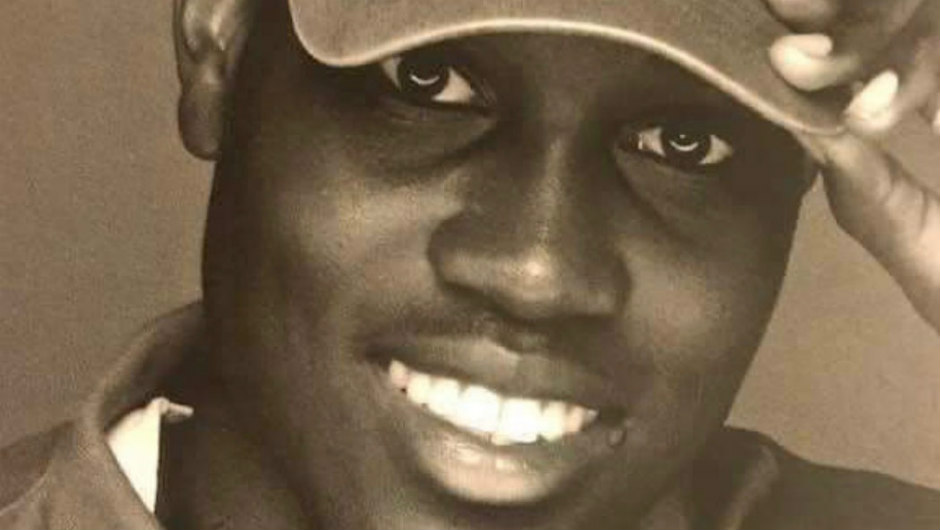As the trial nears in connection with the murder of Georgia jogger, Ahmaud Arbery, a county court mistake could possibly result in a mistrial.
According to Vice, potential jurors who click on the Glynn County Superior Court website to search for days and time to show up for the upcoming trial of Travis McMichael, Gregory McMichael, and William “Roddie” Bryan, were given access to Arbery’s history. The accessible documents reportedly contained information concerning Arbery’s criminal history and mental health history.
“Prominently displaying that information and it being accessible to jurors with just a click of a button, I would say is problematic,” Suparna Malempati, a professor at Atlanta’s John Marshall Law School, told VICE News. “When potential jurors have information that may or may not be admitted in the courtroom, the jurors may be influenced.’”
Jurors who saw the information will be disqualified from the jury pool and excused. If a juror saw the information still remains as a juror, a mistrial could happen.
Other evidence on the site included the number of times the McMichaels used their guns, along with information about Travis McMichael’s Confederate flag license plate, which the defense has attempted to get thrown out.
“We are aware of that [website] issue, and the decision about that will be made by the judge,” Glynn County Superior Court Clerk Ronald Adams said.

As CrimeOnline previously reported, in June 2020, Judge Wallace E. Harrell of Glynn County Magistrate Court ruled that enough probable cause exists to uphold murder charges against the McMichaels, as well as their friend, William “Roddie” Bryan Jr.
Video recorded by Bryan in February 2020 allegedly showed the McMichaels chasing Arbery for several minutes around the Satilla Shores neighborhood in Brunswick, while in their truck, before blocking him in. The McMichaels suspected that Arbery was responsible for a string of break-ins in the neighborhood, although they had no proof of their claims.
Bryan, who also pursued Arbery in his vehicle, blocked Arbery with his truck from behind as the McMichaels circled around the blocked and stopped in front of the victim, court documents state.
Travis McMichael then got out of his truck, armed with a shotgun. A scuffle broke out and Travis McMichael ended up shooting Arbery three times.
Arbery, unarmed, died at the scene.
During a preliminary court hearing last summer, Georgia Bureau of Investigation agent Richard Dial provided testimony that provided a glimpse into the suspects’ alleged racist views. Key points of Dial’s testimony include:
- Neighbors told authorities that they had seen Arbery jogging several times previously in the neighborhood, and often waved and spoke to him.
- Social media messages sent by Bryan indicated that he used the n-word to describe black people.
- Travis McMichael admitted he shot Arbery three times during the heat of the moment and that his adrenaline was pumping.
- Bryan told police he heard Travis McMichael yell “fu***** n*****” after shooting Arbery and while standing over his body.
- The McMichaels never called 911 before pursuing him.
- Arbery ran in a ditch to avoid the suspects, but when he emerged and tried to leave the neighborhood, the suspects wouldn’t let him.
- Bryan hit Arbery with his truck when Arbery tried to exit the neighborhood.
- Bryan waited until after the McMichaels’ arrests before he admitted to hearing the racial slur. He never mentioned it previously.
- Travis McMichael used racial epitaphs numerous times over text messages and social media. He allegedly said he wished someone would “blow that fu***** n****** head off.”
- In another instance, Travis McMichael, who was in the U.S. Coast Guard, said he loved his job because “was on a boat and there weren’t any N-words anywhere.”
Defense lawyers for the suspects argued that murder charges should be dropped. Franklin Hogue, a lawyer for Gregory McMichael, said that his client had a valid reason to believe Arbery committed a crime. McMichael, however, previously admitted that he wasn’t sure if Arbery had been responsible for recent break-ins in the neighborhood, but had a “gut feeling.”
Travis McMichael’s lawyer, Jason Sheffield, argued that his client was defending himself during a scuffle with Arbery.
Sheffield: “Travis McMichael used self-defense when he was attacked by Mr. Arbery.”
Dial: “I don’t think it was self-defense by Mr. McMichael. I believe it was self-defense by Mr. Arbery.”
Check back for updates.
Click HERE to read additional coverage of the Arbery case.
For the latest true crime and justice news, subscribe to the ‘Crime Stories with Nancy Grace’ podcast.
[Feature Photo: Ahmaud Arbery/Handout]



